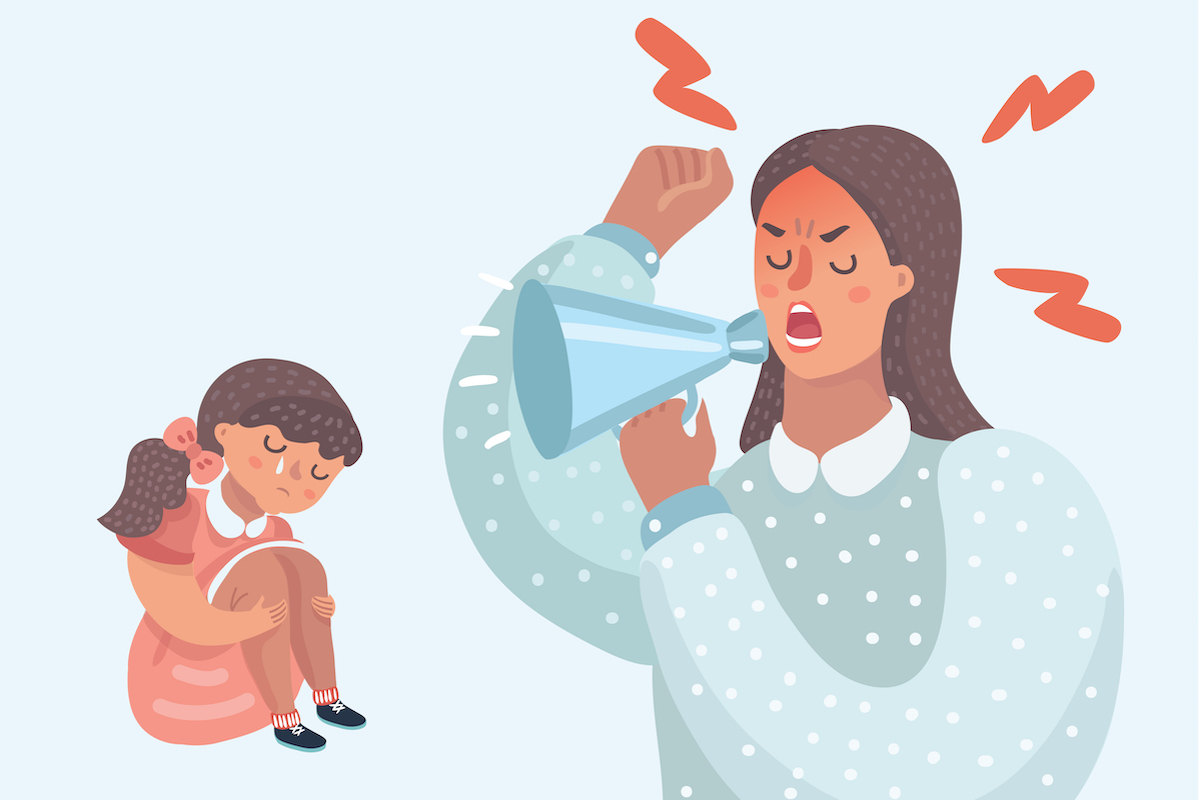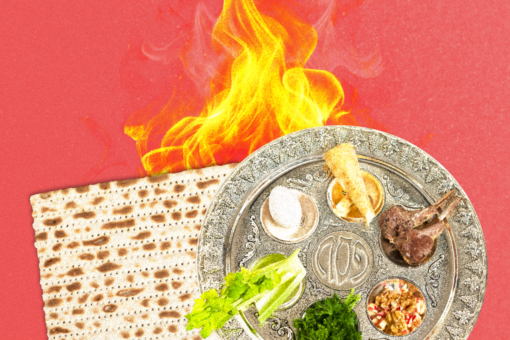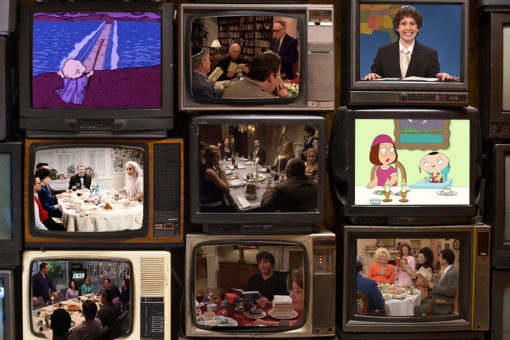For most of my life, I have justified emotionally and verbally abusive behavior as something inherently Jewish.
Rage is the rule, not the exception, in my family. I am the third generation in a line of New York Ashkenazi Jews, all of whom have the baseline volume of Bernie Sanders on the debate stage, but there is a difference between passion and anger that volume can elide. Verbal abuse, emotional abuse, and worse was passed down between the generations as though it was fine china or silver candlesticks.
My grandma grew up in an angry household, headed by exhausted Eastern European parents and brought low by the Great Depression. Later on, tired from her days as a bookkeeper and frustrated by the demands of the children she never really wanted, she would vent her anger by screaming at my mother and uncle. Sometimes, she would grab a hairbrush, her children cowering in a corner and my grandpa either unable or unwilling to stop her, lest he become the target of her rage. Even after my grandma seized my mother by the hair and banged her head against the wall after my mom dropped out of college, even after she dug her fingernails into my mom’s wrist until she drew blood, my mother stuck by her, loved her, took care of her into her addled old age. She died five years ago and my mother will still defend her. You only get one mother, she’d say, and besides, we’re Jewish.
This is how Jewish mothers are, the reasoning went. Jewish mothers are loud and domineering by definition. It wasn’t abuse, of course, because abuse doesn’t happen in nice Jewish families like ours.
Later, when my parents got married, my mother believed that she chose a different path for herself. She pledged not to make the same choices that my grandma did, so as not to inflict similar levels of harm upon her children. While my mom avoided some of the abusive behaviors that my grandma embraced — she has never laid hands on me or my younger brother — others did not skip her generation. Her normal speaking voice, already loud, will grow to an ear-splitting crescendo when she is challenged. She has no trouble expressing hypercritical comments about the state of my career, appearance, childlessness, or home, and argues that she has no obligation to sugarcoat her opinions about me when I become upset. She tramples personal boundaries with impunity and glosses over her dismissiveness toward my feelings by saying, “I’m a Jewish mother and what’s on my lung is on my tongue. I’m not going to walk on eggshells for you. This is who I am.” Any time a conflict boils over into something approaching emotional abuse, she leans into her Jewish motherhood as a means of both explanation and excuse.
The stereotype of the Ashkenazi Jewish mother is an especially enduring one in the Jewish-American imagination, tracing its lineage from the nurturing “yiddische mama” figure promulgated by Sophie Tucker and Al Jolson in the 1920s, through to the mid-century harridans of Borscht Belt comedians and Philip Roth novels, and on to the screeching, food-obsessed Sylvia Fines of ‘90s sitcoms.
Younger Jewish women have as of late interrogated the stereotype, leading to more positive representations of Jewish mothers in the media (see, for example, Susie Essman’s guest turn on Broad City, itself an explicitly Jewish show written by and starring two Jewish women). Historically, however, the image of the Jewish mother has been shaped by Jewish men, whose deep-seated anxieties about cultural assimilation in a WASP-dominated milieu and toxic misogyny collided to produce a singularly negative picture of Jewish womanhood.
This would be bad enough, but many Baby Boomer Jewish women like my mother not only did not push back against the Jewish mother stereotype, but instead chose to embrace it. Rather than reject it as being emblematic of sexism and internalized self-hatred, she uses it as a cover for her most problematic and manipulative tendencies. Judging from the relationships my Jewish friends have with their own Boomer mothers, she is not alone in this.
I spent my entire life attempting to push back against what I saw as my mother’s incursions on my boundaries while wondering if it was, in fact, true that all Jewish mothers are as critical as they are caring, as prone to mothering as they are manipulation. It took a non-Jewish therapist to impart to me that, no matter the cultural context in which unhealthy and dysfunctional relationships take place, the fact that the behaviors are at root maladaptive and destructive does not change. Jewish mother stereotypes are not, and cannot, remain a cover for abusive behavior.
My mom and I have a close relationship (for the most part, anyway). However, I have called her on the fact that she hides behind Jewish motherhood as an excuse for what has no excuse, and will continue to do so for as long as she uses a cultural stereotype as cover. Jewish mothers exist in many guises; most Jewish mothers aren’t necessarily American, white, and/or Ashkenazi, and there is no Torah or Talmud passage dictating that Jewish moms be disappointed when their progeny aren’t doctors or lawyers, or refuse to straighten their hair or fix their noses, or choose not to marry “nice Jewish boys” (or girls). Millennial Jews who are now mothers themselves are tossing out the hoary old cliches of Jewish motherhood for themselves and their children. It’s time that we encourage our own moms — and grandmas, and any other matriarchal figures in our lives — to do the same.
Image via Anna Drozdova/iStock/Getty Images Plus



